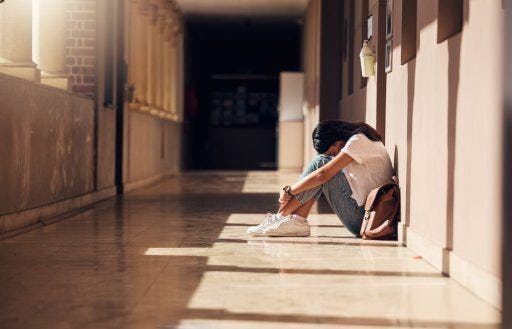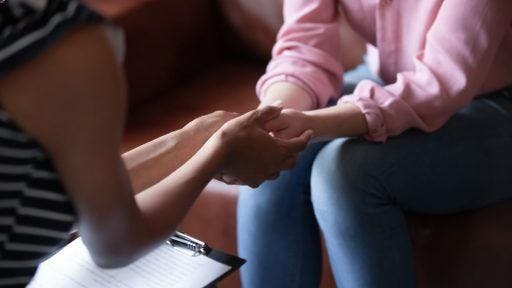Does the thought of being in gatherings fill you with social anxiety? Maybe you make up excuses to skip parties and would often rather be alone. Do you constantly worry about how others perceive you? This hyper-awareness of other people might make “simple” acts like speaking up during a work meeting seem impossible. If any – or all – of these examples resonate, read on for healthy tips to cope.
Is Social Anxiety a Mental Illness?
Social anxiety disorder (SAD), a.k.a. “social phobia,” is a mental health condition under the general umbrella of anxiety disorders. It affects millions globally. Australia-based mental health organisation Beyond Blue estimates that 11% of Australians experience it in their lifetime, while around 7% go through it in any 12-month period.
The National Institute of Mental Health (NIMH) in the US describes it as “more than just shyness” – instead, it’s more like an “intense, persistent fear of being watched and judged by others.” Of course, it’s perfectly natural to feel nervous, especially in unfamiliar settings or groups. However, if that self-consciousness is constant and debilitating, it may be time to seek advice from a healthcare professional.
Symptoms of Social Anxiety

How do you know if you’re dealing with run-of-the-mill nerves or a full-blown social anxiety disorder? According to DSM-5 (The Diagnostic and Statistical Manual of Mental Disorders, Fifth Edition), it’s likely the latter if “the fear, anxiety, or avoidance is persistent, typically lasting for six months or more.” Here are some symptoms to look for per the DSM-5:
- Feeling disproportionately fearful or anxious in situations where you may experience scrutiny from others, such as having conversations, eating or drinking, or giving a speech.
- Avoiding social situations altogether or barely enduring them.
- Experiencing fear, anxiety, and avoidance that greatly impair day-to-day life.
The NIMH also identifies some physical symptoms, including blushing, sweating, trembling, nausea, and an increased heart rate when being social. Of course, it’s not all-or-nothing for everyone. The American Psychiatric Association (APA) developed the Severity Measure for Social Anxiety Disorder to help determine if a patient has a mild, moderate, severe, or extreme case.
What Causes Social Anxiety?

The Anxiety and Depression Association of America (ADAA) confirms that “biological, genetic, and environmental factors” can make you more likely to develop the condition. For example, if you have:
- A family history of anxiety
- Imbalances in neurotransmitters, such as low levels of serotonin
- Experiences with bullying or maltreatment
Social anxiety disorder typically manifests in childhood or adolescence. However, it can also develop later in life. According to the book Social Anxiety Disorder: Recognition, Assessment and Treatment, early signs include crying, “freezing,” or having behavioural outbursts, like tantrums.
While exact causes are often hard to determine, the book notes that “some people can identify a particular time when their social anxiety disorder started and may associate it with [an] event (for example, moving to a new school or being bullied or teased).”
What Is the Impact of Social Anxiety?
What does social anxiety do to you? Like other mental health conditions, it can negatively affect different areas of your life when you don’t seek necessary support. People with SAD may struggle to:
- Cultivate healthy, long-lasting relationships.
- Make advancements in their job or career.
- Regulate their stress levels and sleep cycle.
- Embrace personal growth opportunities, like making connections or excelling in school.
- Stay off harmful or destructive substances, like illegal drugs and alcohol, that help them “manage” their anxiety.
That’s why it’s essential for those with the condition to seek professional help to manage symptoms. Talking to a specialist can equip you with the tools needed to handle it in a healthy way.
How to Manage Social Anxiety – With Tips from the Stars

Being in the public eye sounds like a nightmare for people with SAD. But, sometimes, your passions and talents push you into the limelight. That’s right: you’ll be surprised how many famous folks have the condition. Here’s what you can learn from some of them.
1. Try talk therapy.

The NIMH considers cognitive behavioural therapy (CBT) “the gold standard” for psychotherapy. It’s a common treatment for SAD, as it can help patients learn new ways of thinking, behaving, and reacting to make them less anxious or afraid.
While not every psychotherapist has CBT training, they all know how to talk patients through their issues and suggest better coping methods. Actress Shailene Woodley, who touched on her social anxiety in a profile for Harper’s Bazaar, is a big believer in talk therapy.
“I decided to rearrange my life, so therapy was a priority,” Woodley shared. Other celebs who advocate for it include actress Emma Stone, NFL star Ricky Williams, and singer-songwriter Olivia Rodrigo.
2. Don’t push yourself too hard.

In 2021, professional tennis player Naomi Osaka withdrew from the French Open to prioritise her mental health. “Anyone that knows me knows I’m introverted, and […] get huge waves of anxiety before I speak to the world’s media,” she shared in an Instagram post.
When dealing with SAD, you won’t always know when to step out of your comfort zone and when to take a breather. It’s a delicate balancing act. But, like Osaka, you shouldn’t be afraid to pause your progress and try again later – even if not everyone will understand.
3. Talk about it.

In interviews with Seventeen and W, actress Lili Reinhart shared how she’s “had social anxiety forever” and that she “had to keep quitting jobs because [she] physically couldn’t work.” Today, Reinhart is very open about her struggles with anxiety, depression, and body image.
It may not be easy to speak out about what you’re going through, but it’s always worth it. If you’re not ready for therapy, confide in your closest friends and family first. Everyone deserves to feel less alone.
4. Consider other forms of therapy.

Actress Jennifer Lawrence once opened up to French magazine Madam Figaro about experiencing a “kind of social anxiety” in her teens. Traditional psychotherapy didn’t work for her then, but acting did. She described it as “opening the door to a universe [she] understood.”
Meanwhile, American TV producer and screenwriter Shonda Rhimes shared in her book Year of Yes that her anxiety was so debilitating that it often kept her from enjoying milestones. To combat it, she started saying “yes” to things that scared her as a form of immersion therapy.
There’s more than one way to take charge of your mental health. For some, that can mean being creative and jumping into exciting new projects. For others, it means building self-confidence through practical measures, like skincare or orthodontic treatment. The latter is perfect if you have crooked teeth that keep you from smiling openly in social situations. If that’s true for you, try aligner therapy with ClearCorrect – a discreet and comfortable way to treat misalignment.
5. Consult your doctor about medication.

Remember: there’s no shame in taking medication to address a health condition like this. It’s the same as wearing a cast to fix a broken arm – if it helps, it helps. But be sure to have an honest discussion with your doctor about what you need and what you should expect with meds.
Still not sure it’s worth considering? Just think about celebrated superstar Barbara Streisand telling O: The Oprah Magazine, “One reason I can perform now is that they have pills for stage fright.” She had stopped performing for 27 years after making a mistake in a show. “I wish somebody had told me about those pills years ago,” she shared.
Is your social anxiety hard to shake off? Do you think it’s more than simply being jittery in crowds or nervous before a big performance? Consult your healthcare provider to understand what you may be going through and to figure out the best treatment for you.
References:
Anxiety and Depression Association of America. (n.d.) Social Anxiety Disorder. ADAA.
Beyond Blue. (n.d.). Social anxiety disorder – Beyond Blue.
Department of Health & Human Services. (n.d.). Social phobia. Better Health Channel.
Social anxiety disorder: more than just shyness. (n.d.). National Institute of Mental Health (NIMH).
Substance Abuse and Mental Health Services Administration (US). (n.d.). Table 16, DSM-IV to DSM-5 Social Phobia/Social Anxiety Disorder Comparison – DSM-5 Changes – NCBI Bookshelf.



